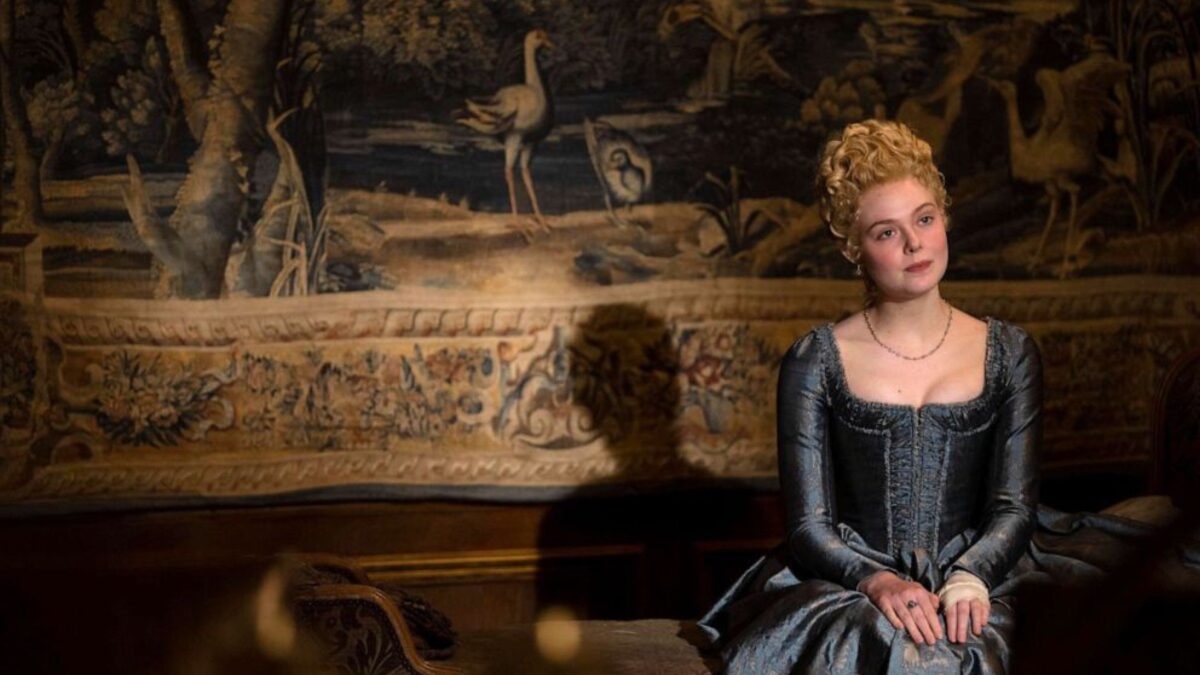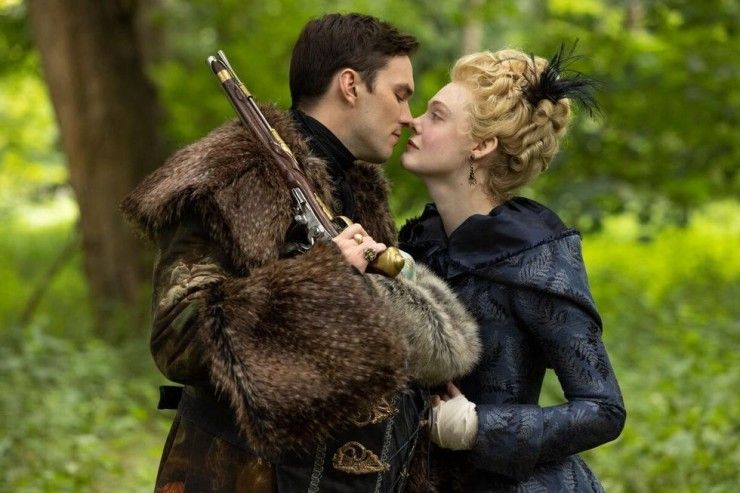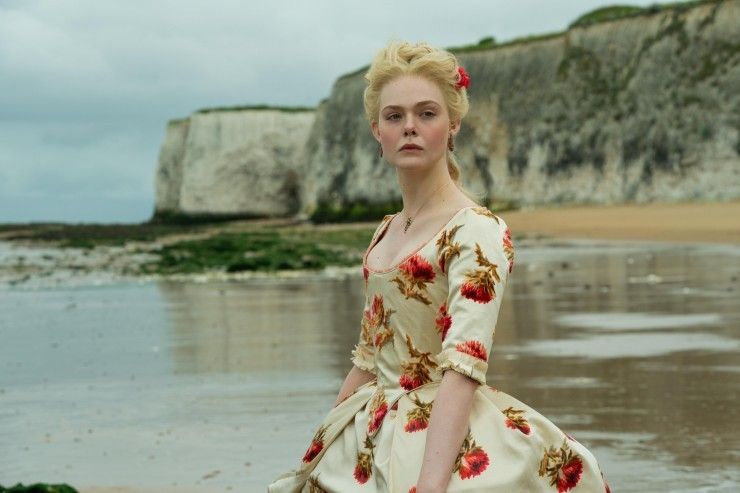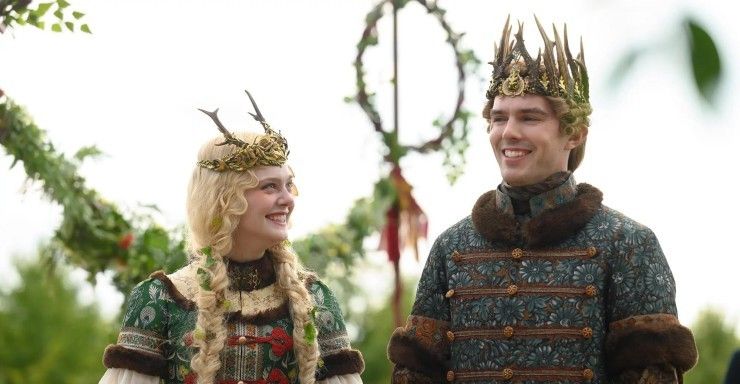
How do you create a period dramedy about Catherine the Great? Producer Marian Macgowan tells us.
Behind every successful television series is a world of intricate collaboration, refined creativity, and dedicated visionaries who bring captivating and diverse stories to life. One of those visionaries is producer Marian Macgowan, the executive producer behind the critically acclaimed series The Great on Hulu.
With three seasons under her belt, Macgowan has played a key role in crafting a show that’s already been nominated for six Emmy Awards, including nominations for its lead performers, Elle Fanning and Nicholas Hoult. In the colorful, wacky, sexy world woven by the exceptional writing of Tony McNamara, Russian royalty engages in hijinks and intrigue ranging from war to murder to horse breeding. You’ll just have to watch season three to see how all that intertwines.
In the meantime, you can read about Macgowan’s experiences working alongside McNamara, her approach to selecting projects, and her invaluable tips on the art of pitching. Huzzah!
The following interview has been edited for length and clarity.
No Film School: I love the show. I have loved it since it started.
Marian Macgowan: A die-hard fan.
NFS: I remember watching the trailer early on before it was released, and thinking it was the perfect show for me. I love period pieces and I love that sense of humor merged with the drama … What got you excited about The Great, and what got you on board?
Macgowan: It was originally a play, which was put on by the Sydney Theatre Company, and when I saw it, what I liked about it was that it was a great role for a woman. It’s sort of the idea that it’s a woman who positively affects the world around her, and that’s an—you don’t get a lot of those stories around, and here it was in a sort of fully formed play form. So, it was something that I could option. So, I optioned it, and working with Tony [McNamara], we developed it originally into a screenplay, which went through a number of incarnations as these things do.
The thing that was interesting about adapting plays is that it’s not necessarily as straightforward as it seems. Certainly, not to cinema. I think they possibly adapt themselves more readily to television than they do to cinema. Oh, that was interesting. The reason I’m hesitating is I was just thinking about The Whale, a Brendan Fraser film, which clearly is a play and feels like a play when you’re watching. But anyway, we did. We went through… The thing that was interesting about the play was it was bifurcated, so the first half of the play was her as a young girl, and the second half of the play was her as an older woman dealing with the repercussions of her decisions. The play used the same actors in both halves in different roles, so we had to resolve that problem. But the thing that drew it to me initially was that sense of female agency.
NFS: Why do you feel like plays are more a fit for TV rather than a feature film?
Macgowan: It’s the dialogue. It’s the dialogue. I mean, plays tell their story very much. It’s very much a dialectic. Not wishing to get too intellectual about it, but it’s a dialectic. One character presents one point of view. The other character presents another point of view, and they tussle on the stage using dialogue primarily, and I think television is much more dialogue-driven. Certainly, the television that we’ve made is much more dialogue-driven. It’s less visually driven in that regard.
NFS: What are the challenges of doing a period show?
Macgowan: Ugh, numerous. So many. In fact, the irony of your opening comments about the period thing is that Tony hates period stories.
NFS: That’s very surprising.
Macgowan: The irony is that he’s done The Favourite and The Great. It’s not lost on him. It’s not lost on him. Period shows, I think, if you’re … It depends on your approach to the period. Are you going to tell a historically accurate period story or are you going to use the period to tell a story based on a theme and a character? That was our approach.
The other big choice I think you make in period stories, and I think it’s true in science fiction stories as well, is how much of the past and present is in any scene. I mean, one of the great things … I remember thinking about Blade Runner and the original movie was that there were vestiges of the 20th century in that story, so you could see where the world had come from. Equally, in a period story, you have to acknowledge that there would be things from two centuries ago or a century ago or two decades ago or whatever it might be, so that’s another choice you have to make.
We were very much looking for a frat boy house when we did the first season. Peter’s world was a frat boy house. They had parties. Things got trashed. Things got burnt. And then, the world that she then takes over becomes more a world of enlightenment and more sort of harmonious interiors. Costumes equally change for that reason. But I mean, it’s a big narrative hurdle in some ways, period, because you’ve got wigs. You’ve got corsets. You’ve got complicated outfits. The decoration and the interiors of the world, there are no cars. There are no phones. There are just carriages and horses. You have to be careful not to let that obscure your characters at the same time.

NFS: I think one thing that resonates so much with viewers of this show is that while it’s a period piece, the stories and characters feel very modern still. I’m interested in how you achieve that as a team.
Macgowan: The primary thing is the anachronistic dialogue, essentially. That’s where it sits, but it’s also that [Catherine] … I mean, at its core, it’s a story about a girl who married the wrong man, and whatever the events that might occur, it always pivots on that relationship and how she is or isn’t managing or it is or isn’t resolving itself. So, I think it’s partly that their relationship with each other is that of a contemporary 20-something, but it’s also primarily the dialogue, and also, I suppose the way in which we interpret contemporary ideas like contraception in sort of 18th-century ways, lemon tops and things like that. So, it’s a contemporary idea, but it’s manifesting in a sort of 18th-century way.
NFS: Like I said, I love the mix of drama with almost manic humor, at times. It feels like a knife edge, and it’s been maintained over the course of several seasons now. How do you do that?
Macgowan: Mostly, we just get Tony to write it. It’s mostly what we do. The other secret to it, just his writing as it is to quite a number of other people I’ve worked with writing, is speed. I mean, the actors do an extraordinary job remembering all that dialogue, but then we very much rely upon the speed with which it’s delivered. That and the other critical aspect of it is the rhythm. So, those elements definitely contribute to sustaining the comic pathos tone.
I suppose the other thing that we do very much is the classic thing. It’s a narrative drama at its core, and if you play it like a narrative drama and let the characters and the dialogue do their job, that seems to us to have worked out to be the best way to keep that tone consistent. Well, every now and then, we realize that it’s not working, and that’s sometimes what doesn’t end up in the cut, and things like that.

NFS: Not to focus on what doesn’t work, but are there discussions about reworking things? Or is it that everyone has a sense this is not fitting what we want to do?
Macgowan: We do reshoot things sometimes and we do pick-up shots, like anybody does, I suspect. I think Tony and I understand and are timely and consistent about the show, that we know instantly if it’s not right. Everything from a cast decision or a cast thought to a costumed thought, we are both instinctively very clear about when that’s right and when that’s not, but I think it’s because we’ve lived with it. I mean, I’ve been working with Tony for 30 years, so we’ve made films together and TV shows together, so I think there’s just an understanding of what’s going to work and what isn’t.
NFS: Obviously, seeing Tony’s work, I’m sure that sparked something, but what are you looking for when you want to option a project or speak with a writer?
Macgowan: I think I’m looking for something that I believe audiences are interested in at the time, a sort of zeitgeist idea, definitely. Then, I’m looking for an original voice because I mean, you put your finger on it in a sense in your opening remarks. The thing that made The Great very hard to get up in the first place, but also makes it successful, is it’s completely unique. There isn’t anything like it. You can’t go and say, “Oh, it’s like that.” So, when you’re sitting in that pitch session going, “Well, you need to make this film because it’s like ‘blah,'” we just didn’t have that, and we had, when it was a film, a lot of concerns, a lot of responses along the lines of, “We love the script, but it’s so execution dependent. We can’t see what it’s going to look like. We don’t know what it’s going to look like.”
So, for me, an original voice is very important combined with, as I say, an idea that I think has its moment now or is something that we’re consciously or unconsciously thinking about or considering or wondering about. Yeah, they’re probably the two main things.

NFS: You mentioned pitching. I know it’s such a big topic and situation-dependent based on which rooms you’re going into, but do you have any general advice you would give to someone going into a pitch?
Macgowan: I think the thing that I always rely upon at the end of the day after many, many pitches is to try and let the people you are talking to understand why you love this. If you can communicate that passion, then I think you get a real chance of communicating why your idea is a good idea and why they should do it. I think when you can get that authenticity, then I think you have a real chance, and that’s really just about understanding why you love it.
What do you think about it? What is it about this idea that makes it so exciting to you and why you can see it on the screen? That’s the thing I hang onto and I don’t know. When I’m sitting there and everyone’s staring blankly at me, I just think, “Okay, why do I love this? What is it? How do I let them understand how I feel about this and communicate my passion?”
NFS: Any other advice for aspiring showrunners?
Macgowan: I think, speak up. Just hang on to your idea as tightly as you can because there are a lot of forces that just don’t understand where you’d understand it and you need to stay firm to that. So, if the director is pushing back on something, understand why they’re pushing back. If the studio or the network, whoever it is who’s also of the cast, just be clear that everybody’s on the same page. It’s the age-old advice about “Just be sure you’re all making the same show,” and hang on to it. It never hurts to say, “You know what? I’m not sure that’s right.” It might turn out to be right, but it never hurts to question it.














